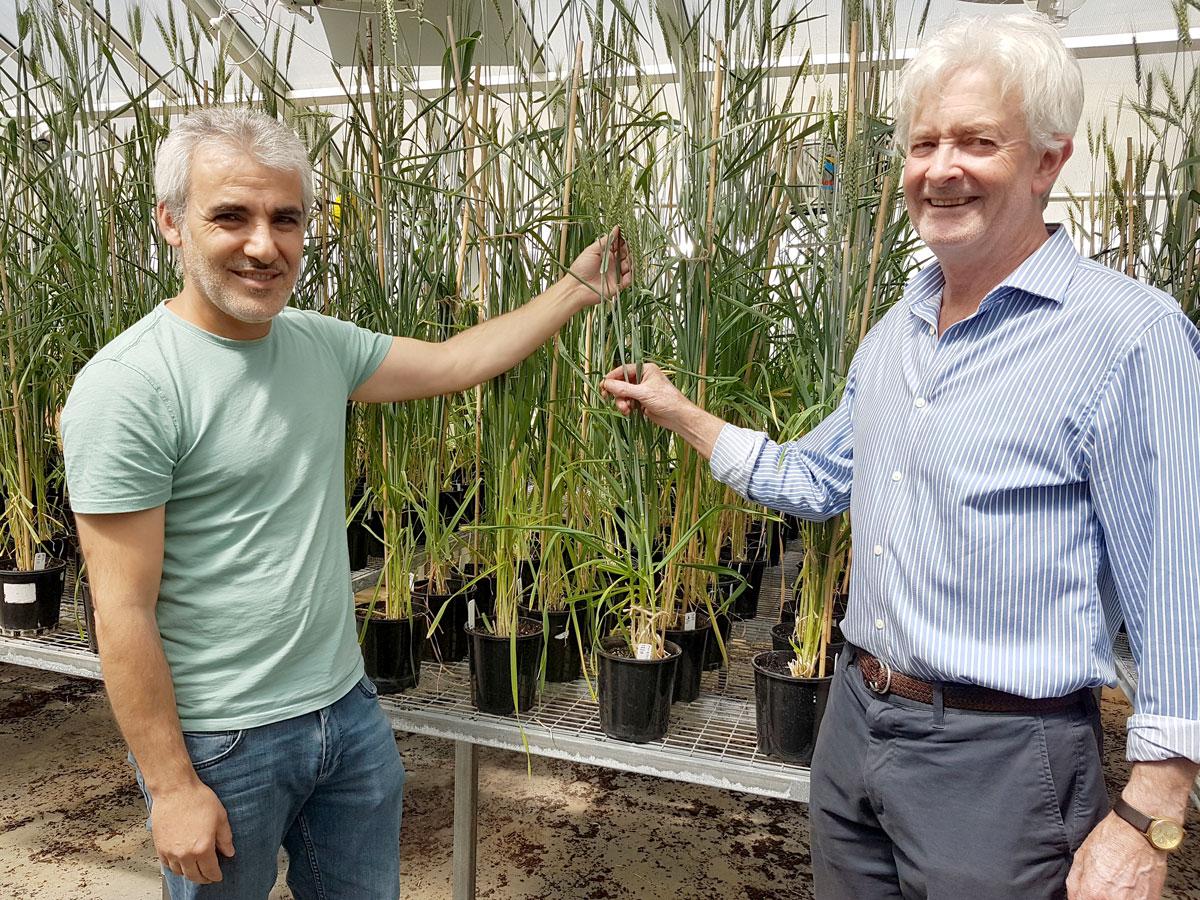‘Game changing’ salt tolerant wheat set for field trials
Field trials will begin for a new type of salt tolerant bread wheat that has the potential to boost both the yield and profit of Australian and international crops.
Led by South Australian Research and Development Institute (SARDI) researchers in partnership with the University of Adelaide, the study continues more than eight years of research into the development of lines of bread wheat with the potential to significantly improve adaptation to saline (presence of salt) or sodic (presence of sodium and certain soil physical traits) soils.

Published in the journal Frontiers of Plant Science, lead researcher Dr Yusuf Genc explains that, “salinity and sodicity are major constraints to global cereal production, but until now, despite substantial international research effort, farmers in marginal areas are yet to reap the benefits”.
The new line of wheat known as MW293 has been dubbed ‘golden goose’ by researchers not only for its impressive production, but because it takes up large amounts of salt from the soil into its leaves. This challenges previous literature that suggests successful saline tolerant varieties should not absorb much salt.
“I call it ‘Golden Goose’ because to me it’s magical, I’ve never seen anything like it,” says Dr Genc.
“I couldn’t imagine a bread wheat that could accumulate this much salt, yet it would be so tolerant because it goes against the current low-salt paradigm.”

Researchers Dr Yusuf Genc - SARDI and Dr Graham Lyons - School of Agriculture, Food and Wine - with the MW293 wheat.
Researchers have been working on the project since the first cross was made between US germplasm W4909 and popular Australian bread wheat variety Mace in 2011. The ‘super line’ MW#293 from a Mace/W4909 cross, thrived in saline soil lab trials, producing twice the grain as Mace in salty soil and also outperforming it in non-saline conditions.
“When we did the analysis of the leaf, what we found was just incredible, there was 100-fold more sodium in the leaf than we normally see in bread wheat varieties,” says Dr Genc.
“It’s very exciting because it’s got more salt and more yield, which was not the paradigm at the time because everyone was chasing the idea of sodium exclusion leading to increased yield but that was not the case, so it surprised us in a good way."
Dr Genc says traditionally, people have associated salt tolerance with low salt in the plant.
“They just assumed that if there is low salt in the plant then it will be more tolerant because it is excluding the salt and pumping it back out into the soil.”
Dryland salinity is a major problem for broadacre farmers in Australia, particularly in areas with low rainfall. However, many other wheat producing nations with salinity issues such as the United States, Iran, India and China could also benefit from the research.
Trials set for Roseworthy and Red Hill

Field trials will be conducted at non-saline sites at Roseworthy (pictured) and saline sites at Red Hill.
SARDI and its research and industry partners will conduct field trials at South Australian sites near Roseworthy (non-saline) and at Red Hill (saline) in the state’s Mid North.
Dr Genc said the germplasm needed to perform well in both conditions as salinity levels varied from field to field and season to season. He said a commercial variety was still several years away.
“Our purpose is to get a genetic marker that is linked to the new salt tolerant trait and then use that marker in breeding.
“This will rapidly speed up the breeding process.
“We could end up with a variety that is a direct selection from the original lines we developed and that would be fantastic.
“But if we don’t then we can still use the marker to make other varieties better – once it’s proven, the breeding can be done with any variety.”
Led by SARDI, the research division of Primary Industries and Regions SA, the work is a collaboration with University of Adelaide, the University’s Waite Research Institute and The Yitpi Foundation.
Further reading
Parts of this news story have been adapted from the following articles:
- Bread wheat with high salinity and sodicity tolerance, Frontiers in Plant Science
- Bread wheat with high salinity and sodicity tolerance, Waite Research Precinct
- ‘Golden goose’ of salt tolerant wheat varieties to begin field trials, The Lead South Australia (Republished under a Creative Commons licence)
